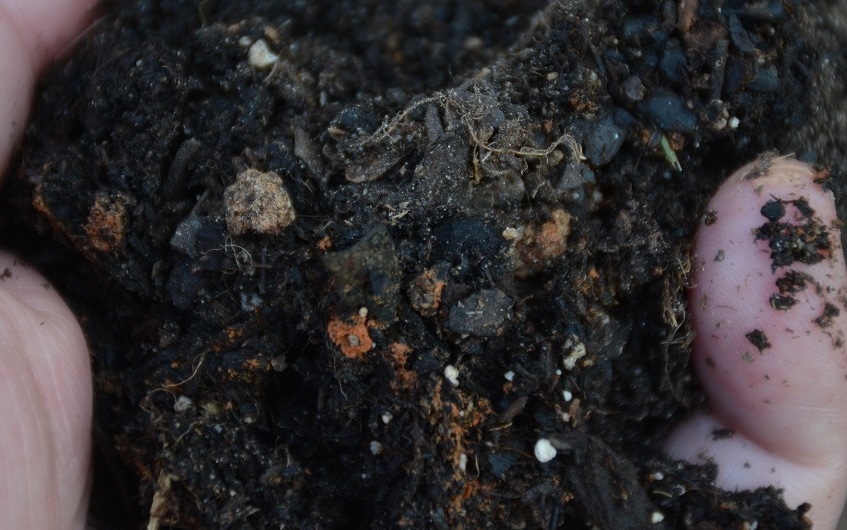
We've been hearing about medical microbes for some time now—for instance, how the use of synthetic probiotics can help people with stomach disorders work through health issues and enjoy a happier, healthier lifestyle.
In recent years, dietitians and physicians have been pushing the consumption of yogurt as a natural way to replenish probiotics, or good bacteria, into the human digestive system.
But a growing development in agriculture is beginning to refocus research into microbials in a big way with major agro-industrial giants like Bayer CropScience, Monsanto, Syngenta, BASF, Arysta LifeScience and others betting the farm (pardon the pun) that beneficial soil bacteria and fungi can change the way we farm globally by increasing plant efficiency, ultimately resulting in higher yields and other factors designed to provide positive results for producers.
For the latest on southwest agriculture, please check out Southwest Farm Press Daily and receive the latest news right to your inbox.
Massachusetts Institute of Technology's (MIT) involvement in developing an in-house incubator through VentureLabs was one of the major catalysts that gave birth to David Perry's Indigo of Cambridge, Mass., a new startup operation that provided a great deal of research and product development into microbial applications for agriculture. Perry says he believes it is possible to develop beneficial bacteria and fungi into a benefit for plants that’s similar to the way probiotics aid human microbiome.
Simply put, human microbiotics include bacteria, fungi, and archaea. It is believed those that do not cause disease are beneficial to human health. Perry and other researchers believe the same is true for soil microbials and plants.
He believes if the right types of microbes can be removed from soil, altered, and introduced into seeds or plants, could represent an agricultural revolution. Such beneficial organisms could help to boost growth, increase resistance to drought, disease and pests, increase yields and greatly reduce farmers’ reliance on fertilizers and pesticides.
EMERGING INDUSTRY
Analysts say if research continues to support the science behind the introduction of microbials into plant development, it could easily result in an overnight explosion in the value of the emerging industry.
They also believe that would explain why major agro-industrial giants are rapidly joining the movement into new microbial research at an alarming speed.
Four years ago, Bayer CropScience paid $425 million for AgraQuest of Davis, California, to position their research efforts in that very direction. DuPont purchased Taxon Biosciences Inc. last year, while Monsanto acquired key assets of Agradis and Synthetic Genomics three years ago. All four of those new startups were producing some amazing results in microbial research.
While the “gold rush” into microbial research may be on, the science is not new. Scientists have known since the 1800s that soil microbes can be the cause of many plant diseases, but they also discovered many microbial organisms could be beneficial to plant growth.
They discovered that rhizobia bacteria, for example, could help form nodules on the roots of legumes that helped convert nitrogen into a more usable form for plants in exchange for feeding off the plant's sugars. Historical reports indicate that discovery helped to develop a system of crop rotation that has helped keep fields fertile for hundreds of years.
CHEMICAL REVOLUTION EFFECT
But with the advent of chemical fertilizers and pesticides, microbial research gave way to a chemical revolution. In time, such newly-developed chemical products helped to create an explosion in food production that has produced positive results for many years. It wasn't until recent times that science began to realize that mass chemical application over an extended period has created its own set of unique challenges, specifically pest and weed resistance issues and environmental concerns.
Perry and other scientists hope the re-emergence of microbial research can help to correct many of these negative impacts, but they admit the road to recovery may not be an easy one.
With the introduction of genetically-modified crops in recent years and the negative reaction by many consumers and environmentalist groups—in spite of scientific research that has proven their effectiveness and safety—venturing into yet another area of agricultural science that could fuel the fires of fear has many producers expressing concern and worry over how the public may or may not be ready for more agroscience controversy.
Many producers have simply turned a cold shoulder to the possibilities of microbial benefits of farming, fearing additional negative press over the issue. Yet other farmers have expressed hope that any new research that points to better plant health and crop yields is a move in the right direction.
The road to acceptance of the new science may be a rocky one. While there is ample evidence of many benefits from microbial applications in agriculture, even researchers question how much good and for how long.
Most researchers say challenges remain and admit more work is yet to be done, the possible benefits are too numerous and too good to ignore. Under ideal circumstances, if even only a portion of the expected benefits are realized over time, it could represent a giant step forward for agricultural production in the future. And that is a risk many ag researchers are apparently willing to take.
About the Author(s)
You May Also Like




